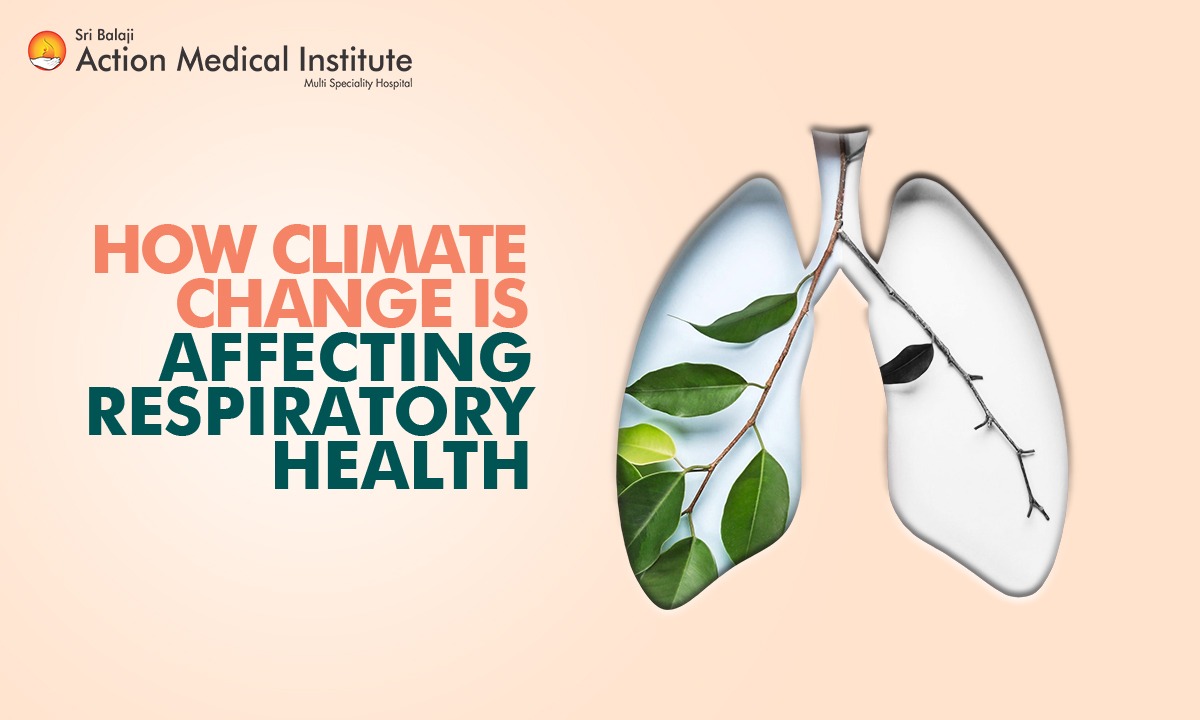How Climate Change is Affecting Respiratory Health
Global warming, the increase in concentrations of greenhouse gases, carbon dioxide, methane, nitrogen trifluoride, and water vapour in the atmosphere, is an international issue that impacts the environment, economy and health of human beings. Despite these issues, one of the most concerning social impacts of coking coal is the failure of respiratory health. Day by day, the condition is worsening as temperature increases, air pollution levels go up, and climatic changes and variations are on the rise. People all over the world are increasingly suffering from respiratory ailments. This article explains how climate change impacts respiratory health and why individuals should consult pulmonologist in Delhi.
The Connection Between Climatic Change and Lung Health
This makes climate change a reality that is going to deteriorate in the future, as per the forecasts derived from observed trends. Climate change represents a massive threat to respiratory health (1) by making them directly prone to or worsening respiratory diseases (2) by enhancing contact with causes of respiratory diseases. It raises the proportion of pollen and allergens released by each plant, mould spores, ground-level outdoor ozone, and particulate matter. The major diseases of interest are asthma, COPD, and respiratory tract infections. Elderly citizens, people with respiratory problems, or groups with existing cardiopulmonary problems will also be affected worse by climate change.
Factors leading to increased climate change and severely bad respiratory health are:
Increased Air Pollution
Even though a direct causality between climate change and respiratory diseases has not been proven, air pollution has been identified as one of the possible pathways. It catches heat from the air, which, therefore, leads to the formation of ground-level ozone, the key component of smog. Ozone is a byproduct of pollutant chemicals that are caused by vehicles, industries, and other similar sources that are exposed to chemical reactions through light. Ozone pollution achieves this by aggravating the respiratory system, thus causing asthma, bronchitis, respiratory diseases and many other related diseases.
Wildfires and Particulate Matter
It has also been attributed to climate change, which has led to more frequent and extremely intense wildfires. These fires let out huge quantities of particulate matter (PM) into the atmosphere. PM2.5 is small enough to get into the lungs and even into the bloodstream, which is why it causes many problems, such as asthma, restricted lung capacity, and heart diseases
Allergens and Respiratory Illnesses
With climate change leading to increased temperatures and increased levels of CO2, the distribution of allergens like pollen can also be enhanced. Seasonal pollen counts and duration are extended and may cause allergies and asthmatic attacks in people, especially those sensitive to pollens. It is worth noting that this is even more dangerous for people with other related ailments, such as respiratory disorders.
Extreme Weather Events
Global warming is characterised by increased and prolonged scale weather conditions like hurricanes, floods and heat, amongst others. These events may also entail the possibility of incidents that impact respiratory well-being in the short run and in the future. For instance, the flood case results in the growth of mould in houses or buildings, which then causes respiratory diseases, while the heat wave case increases the risk of heat stroke and respiratory diseases.
Measures To Minimise The Effects Of Environmental Factors That Cause Respiratory Diseases
The necessary actions are adaptation and mitigation measures.
1) supportive measures to enhance the use of non-polluting sources of energy;
2) decreasing the movement of motor vehicle particular fossil fuel towns and enhancing the public transport system;
3) decreasing the consumption of fossil fuels and managing vehicle emissions;
4) planting of non-allergenic trees in the cities; in this regard, it is imperative that the trees to be planted be recommended by allergists to prevent the planting of highly allergenic species.
Why Is It Advisable to Consult the Pulmonologist in Delhi?
Therefore, the need for recommended health consultations and seeking the assistance of professional health care practitioners increases due to the effects of climate change on people's respiratory health. Delhi has some of the most skilled pulmonologists who can effectively treat patients with a variety of respiratory disorders. Such specialists can develop tactics and strategies for each person and prescribe a number of measures for the prevention of further disease progression, in addition to helping a patient understand and control symptoms.
Finding The Best Pulmonologist in Delhi
When looking for the best pulmonologist in Delhi, consider the following factors:
Experience and Expertise: Seek someone who has spent most of their time practising respiratory illnesses that have an aspect of the environment causing them.
Advanced Diagnostic Tools: Make certain that the pulmonologist employs modern tools to diagnose respiratory diseases and analyse the patient’s condition effectively.
Comprehensive Care: The pulmonologists are courteous and do not only treat the symptoms of the diseases affecting the respiratory systems but the cause as well.
The Bottom Line
Everyone on the planet is feeling the effects of climate change, especially in regard to respiratory health, where air pollution, wildfires, allergens, and extreme weather are all contributing factors to more respiratory issues. One needs to follow the impacts and should consult the experience pulmonologist in Delhi in case of any respiratory problem, mainly in metropolitan cities, where air pollution is pretty high. Thus, people should be more proactive to ensure proper treatment and preliminary consultations for respiratory problems, which are caused by the new climate conditions.






